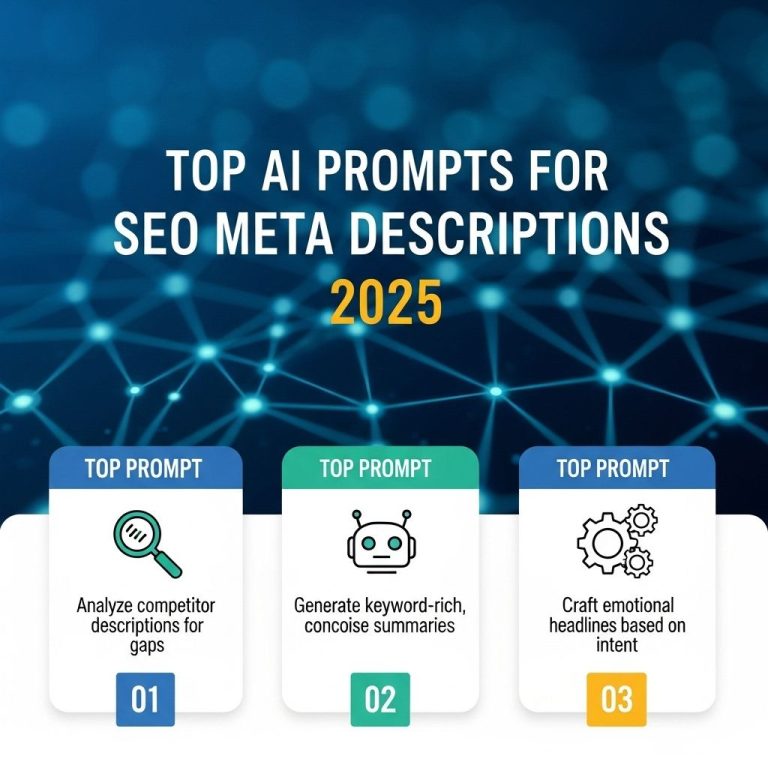In the ever-evolving landscape of digital marketing, optimization for search engines is crucial for driving organic traffic and ensuring visibility. As artificial intelligence (AI) continues to transform the way marketers approach SEO, leveraging AI-driven keyword prompts can significantly enhance your SEO strategy. This article explores the intricacies of using AI for keyword generation, practical applications, and how to integrate these strategies into your overall SEO plan.
Understanding the Basics of SEO
Search Engine Optimization (SEO) is the practice of optimizing your website to rank higher in search engine results pages (SERPs). The core components of SEO include:
- On-page SEO: Elements within your website like content quality, keyword usage, and HTML tags.
- Off-page SEO: External factors such as backlinks, social media engagement, and brand mentions.
- Technical SEO: Enhancements that facilitate crawling and indexing by search engines.
The Role of Keywords in SEO
Keywords are the foundation of SEO. They are the phrases and terms users enter into search engines. An effective keyword strategy involves:
- Research: Identifying relevant keywords.
- Optimization: Integrating these keywords strategically in your content.
- Tracking: Analyzing performance to refine strategies.
Why AI for Keyword Research?
Traditional methods of keyword research often involve manual searching and brainstorming. In contrast, AI can analyze vast amounts of data in real-time, providing insights based on current trends, user behavior, and search patterns. Here are some benefits of using AI for keyword research:
- Speed: Quickly generates a large volume of keywords.
- Accuracy: Leverages algorithms for precise data analysis.
- Trend Analysis: Identifies emerging keywords before they become mainstream.
Implementing AI Keyword Prompts
Adopting AI-generated keyword prompts can be a game-changer. The following steps outline how to effectively implement these prompts into your SEO strategy:
Step 1: Choose the Right AI Tool
Select an AI tool that specializes in SEO and keyword research. Some popular tools include:
| Tool | Features | Price |
|---|---|---|
| SEMrush | Keyword Magic Tool, SEO Writing Assistant | Starts at $119.95/month |
| Ahrefs | Keyword Explorer, Content Explorer | Starts at $99/month |
| Ubersuggest | Keyword suggestions, SEO Analyzer | Free and paid plans starting from $12/month |
Step 2: Generate Keyword Ideas
Once you have selected a tool, input seed keywords relevant to your niche. The AI will generate a list of related keywords and phrases. Consider the following points:
- Look for long-tail keywords with lower competition.
- Analyze the search intent behind keywords.
- Prioritize keywords that align with your content strategy.
Step 3: Analyze Keyword Metrics
Pay close attention to various metrics associated with the keywords generated, such as:
- Search Volume: The number of searches a keyword receives.
- Keyword Difficulty: A score indicating how hard it would be to rank for that keyword.
- CPC (Cost-per-click): The average cost an advertiser pays for this keyword.
Creating Content Around Keywords
After identifying the right keywords, the next step is to create high-quality content that incorporates these keywords efficiently. Here’s how:
Content Structuring
Organize your content into clear sections that make it easy for readers and search engines to navigate. Use headings and subheadings effectively:
- Use
<h1>for main titles and<h2>and<h3>for subsections. - Incorporate keywords naturally within headings.
Optimizing for Readability
Ensure your content is engaging and easy to read by:
- Using short paragraphs and bullet points.
- Incorporating images and videos to enhance understanding.
- Including internal and external links to provide additional value.
Monitoring and Adjusting Your Strategy
SEO is not a one-time task but an ongoing process. Regular monitoring and adjustments are crucial for sustained success:
Use Analytics Tools
Utilize tools like Google Analytics to track the performance of your keywords. Key metrics to focus on include:
- Organic Traffic: The number of visitors coming from search engines.
- Bounce Rate: The percentage of visitors who leave after viewing only one page.
- Average Time on Page: Indicates content engagement levels.
Adapt Based on Data
Use the data collected to refine your keyword strategy. You may need to:
- Replace underperforming keywords.
- Focus on more profitable niches.
- Test different content formats based on user preferences.
The Future of AI and SEO
As AI technology continues to advance, its applications in SEO will expand. Here are some trends to watch:
- Increased Personalization: AI will enable more tailored content recommendations for users.
- Voice Search Optimization: Growing reliance on voice search will influence keyword strategies.
- Predictive Analysis: Using AI to forecast keyword performance based on trends.
Conclusion
Incorporating effective AI keyword prompts into your SEO strategy is an indispensable move for any digital marketer looking to enhance their online presence. By harnessing the power of AI, you can streamline your keyword research, create data-driven content, and ultimately drive more organic traffic to your website. Stay ahead of the curve in the competitive digital landscape by embracing these innovative techniques today.
FAQ
What are AI keyword prompts?
AI keyword prompts are suggestions generated by artificial intelligence tools that help marketers identify relevant keywords to target for SEO and content creation.
How can AI keyword prompts improve my SEO strategy?
AI keyword prompts can enhance your SEO strategy by providing insights into trending keywords, reducing research time, and helping you create content that aligns with user intent.
What tools can I use to generate AI keyword prompts?
There are several tools available for generating AI keyword prompts, including Google Keyword Planner, SEMrush, Ahrefs, and various AI writing assistants that specialize in SEO.
Are AI-generated keywords effective for content marketing?
Yes, AI-generated keywords can be highly effective for content marketing as they often reflect current search trends and user needs, helping you to attract more organic traffic.
How do I incorporate AI keyword prompts into my content?
You can incorporate AI keyword prompts into your content by using them to guide your topic selection, optimizing headings and subheadings, and naturally integrating keywords throughout your writing.
Can AI keyword prompts help with local SEO?
Absolutely! AI keyword prompts can assist with local SEO by identifying location-specific keywords that can help your business rank higher in local search results.




